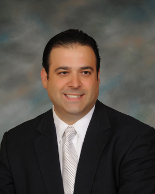When a person dies he or she may leave all kinds of property behind for the living. Whatever it is, however it is owned, it’s important for the new owners to claim it somehow. There begins the estates process. Generally, the nature of a property, and how it’s titled, drives the process of claiming it. For example, properties may pass to new owners automatically, such as when land is owned as joint tenants with rights of survivorship, or between a husband and wife as tenants by the entireties. Or it may be bank accounts which are owned by joint tenants, or perhaps the bank accounts are “payable on death” to someone. There may be insurance contracts payable to specific persons, or which may be payable to trusts or which may yet even lack any beneficiary designation at all. There may be IRA accounts or other retirement accounts which require paperwork forms that are handled by the custodian, or there may be questions about those accounts. People may own a share in a business or have interests in trusts or even other pending estates. A person may have an interest in a lawsuit, or the occasion or cause of death may give rise to certain rights to sue under state law. There may be property owned one way or another inside the state where the deceased resided, or in other states, or even in foreign jurisdictions.
The entire process of getting the property of a deceased into the proper hands may be generally referred to as “estates” practice. For some types of property, perhaps a lawyer is not needed but for matters of any complexity or significant values then a lawyer can and should be hired to oversee and coordinate the entire process, even if at first blush there may not seem to be a need. A good estates lawyer is the quarterback that can run the estate ball all the way down the field to the goal line- getting the property of the deceased into the right hands.
Ultimately, if a property of some kind is not claimed by the proper owners within a certain duration, like a bank account, it will eventually make its way into the hands of the state government’s unclaimed property office. Whether the property is actually owned by one or another in theory due to a will or inheritance law or contractual arrangement, is a secondary determination for the custodian of property, which first has to deal with an account or something going “dormant.” If you are a beneficial owner of any property formerly owned by a deceased person, hiring a lawyer promptly is a good move to getting what is yours sorted out properly.
This website is for informational purposes. All contacts are subject to firm approval as clients, and no legal representation exists by use of this website. Circular 230 Disclosure: any U.S. tax advice contained in this communication is not intended or written to be used, and cannot be used, for the purpose of (i) avoiding penalties under the Internal Revenue Code, or (ii) promoting, marketing or recommending to another party any matters addressed herein.




